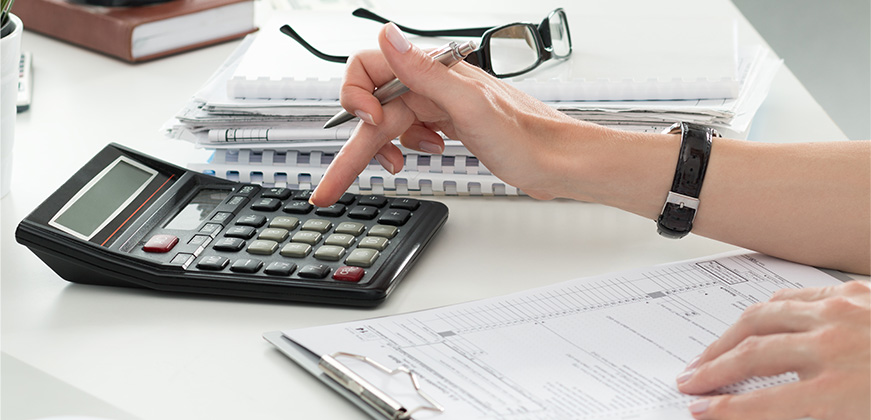If you are working but still face mounting debt, Chapter 13 bankruptcy may be an option.
With a Chapter 13 bankruptcy attorney in Hawaii to support you, you can create a plan to restructure your finances and repay your debt without losing your assets.
You can trust the compassionate Chapter 13 bankruptcy lawyers at Blake Goodman, PC, the largest bankruptcy filing law firm in Honolulu, to guide you toward debt relief.
Contact us online today to get started.
Table of Contents
ToggleShould I File for Chapter 13?
Individual debtors who go through Chapter 13 bankruptcy have the opportunity to repay all of their debts over an agreed-upon period of time.
If you have a regular income and qualify via a financial means test, then you can file a Chapter 13 bankruptcy to restructure or reorganize your debt. Your debt will be consolidated into a lump sum that can be paid off with monthly payments.
Although filing for Chapter 13 bankruptcy can be a difficult venture when you are struggling to pay off your debts, the seasoned bankruptcy lawyers at Blake Goodman, PC, Attorney are here to walk you through each phase of the Chapter 13 process so that you understand the best approach for your unique situation.
Will I Lose My Property in Chapter 13?
If Chapter 13 is a reasonable option for you in bankruptcy, then we can help you avoid losing any of your property. Having a qualified Hawaii bankruptcy attorney is essential for navigating this complex financial process.
Chapter 13 offers many benefits for individuals, so let us give you the expert bankruptcy guidance you need to secure your financial future.
Can Business Owners File for Chapter 13 Bankruptcy?
Individual debtors engaged in business can also file for Chapter 13. A debtor “engaged in business” is someone who is self-employed and incurs trade credit in the production of income from that employment.
A debtor engaged in business can continue to operate their business in a Chapter 13 case. The debtor proposes a plan that outlines how their debts will be repaid and must devote all of their disposable income to payments under the plan for three to five years.
Who Qualifies to File for Chapter 13?
To qualify for Chapter 13, a debtor must have Total Debts of less than $2.75M.
These dollar amounts listed above are usually increased every three years according to a set formula. A trustee is appointed in all Chapter 13 cases, but the trustee’s role is much more limited than in a Chapter 7 or chapter 13 case.
In Chapter 13 cases, a debtor receives a discharge when they have completed all of the payments under the plan.
Generally, a discharge in bankruptcy means that a debtor’s obligations are erased or wiped out. When a discharge is granted, it protects the debtor from personal liability on the discharged debt. However, a discharge is only available to certain debtors and for certain debts.
Burdened By Mounting Debt?
Find your path to financial relief with Chapter 13 bankruptcy. Connect with the experienced bankruptcy attorneys at Blake Goodman, PC today to explore your options. If you’re employed but drowning in debt, Chapter 13 bankruptcy in Hawaii may provide a solution. With a dedicated bankruptcy attorney by your side, you can craft a plan to restructure your finances while safeguarding your assets. Rely on the compassionate lawyers at Blake Goodman, PC, Attorney, to guide you towards your financial freedom. Get in touch online today to begin your journey.
What Is a Chapter 13 Plan?
Chapter 13 is called a “wage earner’s plan” because it allows you to renegotiate your debts and pay them off over time.
You might think of a Chapter 13 plan as a consolidation loan. Following the amounts outlined in your plan, you make payments to a trustee who then distributes the money to your creditors.
Creditors do not contact you while under Chapter 13 protection, so you will get relief when collection efforts stop. A Chapter 13 repayment plan can last three to five years.
How Is Disposable Income Calculated?
The Bankruptcy Code defines disposable income as the average monthly income received during the six months before filing for bankruptcy.
It includes regular contributions to household expenses from non-debtors and income from the debtor’s spouse if the petition is a joint petition.
However, it does not include social security, child support, or certain payments made because the debtor was the victim of a crime.
To figure out how much your plan payments will be, subtract the amount reasonably necessary to maintain your household from your income.
You may also subtract charitable contributions of up to 15% of your gross income. If you own a business, the definition of disposable income excludes amounts required for regular operating expenses.
How Does Chapter 13 Help Me Keep My House?
Some debts, like your home mortgage or car loan, are “secured debts” because the value of an asset backs up the loan. If you don’t make payments, the creditor has the right to foreclose and regain control of the property.
Filing Chapter 13 stops foreclosure proceedings and allows you to cure delinquent payments over time. To keep your home, your Chapter 13 Plan must include payments toward the arrears and your regular mortgage payments.
Your plan must provide secured creditors with at least the value of the collateral. Anything above the collateral’s value becomes an unsecured claim.
Can Chapter 13 Reduce What I Owe?
The plan does not need to pay unsecured debts in full. However, you must pledge all of your expected “disposable income” over the “applicable commitment period” to the plan.
Unsecured creditors need only receive at least as much as they would have received if your assets were liquidated under Chapter 7.
Because you can reschedule your debts and extend them over the life of the Chapter 13 plan, you may see lower payments. Even if you cannot renegotiate your debts, you will be current on your mortgage if you make all the payments under the plan.
What If I Don’t Keep Up with the Plan?
Once the creditors and trustee approve your plan, you must make all the payments due to receive a discharge. If you stop making payments, the court could dismiss your case or convert it to a Chapter 7 liquidation.
However, if circumstances beyond your control keep you from completing the plan, you may ask for a hardship discharge. You must have paid your creditors at least as much as they would have received in a chapter 7 liquidation case to receive a hardship discharge.
Also, the circumstances must prevent a plan modification. For example, an illness or injury that prevents you from working might qualify you for a hardship discharge.
Chapter 13 Bankruptcy Attorney in Hawaii
If you are struggling to make ends meet even while working, Chapter 13 bankruptcy can help you. Because Chapter 13 is complex, you need a Chapter 13 bankruptcy lawyer in Hawaii.
The experienced bankruptcy attorneys at Blake Goodman, PC, Attorney, are here to guide you. When you call us, you reach a compassionate, knowledgeable bankruptcy attorney who will listen to your situation and explain your options.
We dedicate ourselves to our clients, making ourselves available beyond business hours so you can call us after work. We also offer a program to help you rebuild your credit after bankruptcy.
Don’t wait any longer. Call us today or write to our offices.
Frequently Asked Questions About Chapter 13 Bankruptcy
Question #1: What is a discharge?
Generally, a discharge in bankruptcy means that a debtor’s obligations are erased or wiped out. When a discharge is granted, it protects the debtor from personal liability on the discharged debt. However, a discharge is only available to certain debtors and for certain debts.
Question #2: Can Chapter 13 stop foreclosure?
A Chapter 13 Plan helps you avoid losing any property to the bankruptcy system. Our legal team will design a plan to stop foreclosure and stop car repossession. And while the plan reorganizes your mortgage arrearage, in most cases it will also reduce your overall debt load. for more information visit our full article on How Chapter 13 Helps Prevent Foreclosure & Stop Debt Collectors
Question #3: Can Chapter 13 stop calls from creditors?
A Chapter 13 bankruptcy stops creditors from calling you. A strong restraining order goes into effect when you file a Chapter 13 Plan.
The automatic stay prevents all creditor contact including calls, letters, lawsuits, garnishment, foreclosure, and harassment. The creditors have to communicate with your bankruptcy attorney in order to reach you.
Question #4: Will I lose my home by filing Chapter 13 bankruptcy?
Although it is possible in some cases, Chapter 13 offers homeowners the chance to save their residences.
In a Chapter 13 proceeding, even if the debtor is behind on mortgage payments, the wage-earner plan can pay back any missed mortgage payments. The home will not be lost if the debtor continues to make on-going, future payments when due.
Question #5: How often do I have to appear in court?
Only one mandatory appearance is necessary, and it’s not in front of a judge or jury. Your section 341 meeting is in front of your trustee in a bankruptcy court hearing room. It usually lasts 5 minutes. In a large majority of cases, it’s the only appearance you’ll have to make.
Question #6: What is the meeting of creditors?
Between 21 and 50 days after you file the Chapter 13 petition, the trustee will hold a meeting of creditors. You need to attend the meeting with a draft of your proposed plan.
Your creditors and the trustee will ask you questions about your financial situation and the proposed terms of the plan. Your attorney will be with you at the meeting and will brief you on potential questions beforehand.
Question #7: Should I reaffirm a debt?
Reaffirming a debt means you agree to continue making payments on the loan as if you had not filed for bankruptcy. A reaffirmed debt is not discharged at the end of the plan.
You do not have to reaffirm any debt. Speak to your lawyer if you think reaffirming a debt might be right for you. But think carefully before acting because signing a reaffirmation agreement is difficult to undo if you later change your mind.
Question #8: Why do I need a bankruptcy attorney to negotiate for me?
You can try to renegotiate your debts directly with your creditors. However, banks and mortgage lenders are for-profit businesses. They could not survive if they granted every request to modify interest rates or repayment terms.
When you file for Chapter 13, you have the chance to pay back late payments over time and stop harassing collection calls. Your bankruptcy attorney will help you develop a plan that treats creditors fairly and meets your financial goals.
Question #9: Do I need credit counseling?
Yes. You must file a certificate of credit counseling and a copy of your debt repayment plan developed through the counseling with your Chapter 13 petition.
You can complete credit counseling online, through a phone interview, or both. Additionally, before you receive a discharge, you must complete a course in financial management.
Locate Us
Our Locations
Enter your ZIP code to see which location is closer to you



